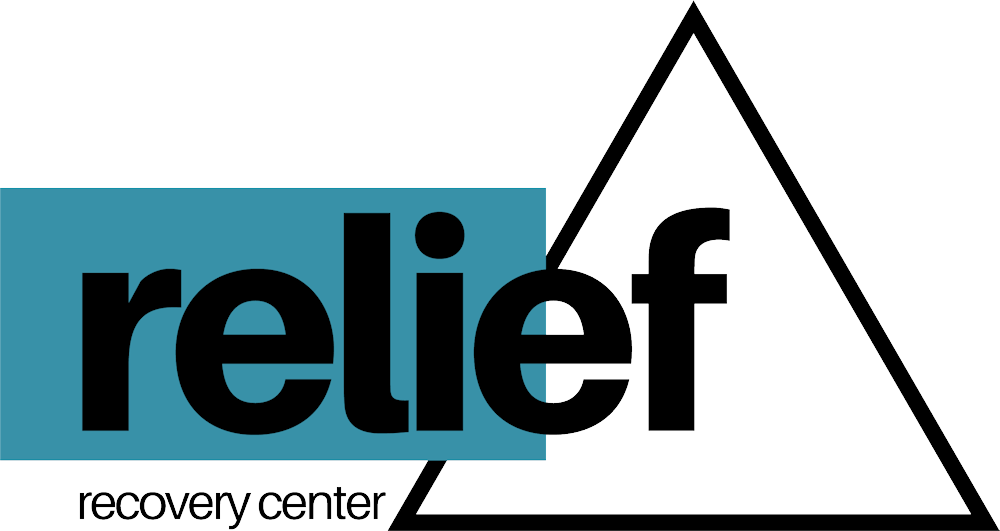Methamphetamine, commonly known as meth, has a grip on many lives with consequences that extend far beyond its temporary highs. While some know meth as a prescription drug for ADHD or weight loss, its notoriety lies in its addictive nature and the ease with which users can fall into a cycle of abuse.
What is Methamphetamine?
Meth, a drug with a reputation that precedes it, is a stimulant that affects the central nervous system with a high potential for addiction. It’s a substance that can hijack the brain’s reward system and leave a trail of altered lives in its wake.
Methamphetamine Use in the United States
The narrative of meth use is not just told through data but through the personal accounts of those affected by its abuse. The scope of meth use in the United States is a patchwork of individual experiences, community struggles, and a constant challenge for public health officials.
How Methamphetamine is Misused
Meth misuse often begins with a search for euphoria, a boost in energy, or a quick solution for weight loss. But these initial reasons quickly become overshadowed by the compulsion to use more, illustrating the personal battles many face after just one encounter.
Immediate Effects of Methamphetamine Misuse
The immediate effects of meth use, such as increased alertness and decreased appetite, are but a prologue to a much more serious and oftentimes tragic story. The rapid onset of euphoria can quickly turn into a life consumed by chasing the fleeting high meth provides.
Methamphetamine and the Risk of Infectious Diseases
Meth abuse is not a solitary affliction; it extends its reach to the well-being of communities through the increased risk of infectious diseases. Sharing the stories of those impacted by this side effect of meth misuse can cast a light on the dire need for preventative measures and comprehensive support systems.
Transition from Short-Term to Long-Term Meth Use
The Allure of Meth: A One-Time Experiment
Curiosity often leads to the first use of meth. Many seek a quick high, a surge of stamina, or a temporary mood lift. Initially, meth delivers an intense rush of happiness. However, this rush fades fast. As a result, the brain starts craving more, trapping the user in a vicious cycle of chasing highs.
Building Tolerance: The Path to Dependence
With regular use, tolerance builds. Users need increasing amounts of meth to reach the high they chase. Consequently, this tolerance paves the way for dependence. Soon, what started as a voluntary act morphs into a dire need for the drug.
The Role of Meth in Chronic Addiction
As addiction takes hold, meth becomes the user’s focal point. Eventually, getting and using meth overshadows everything else, including health, relationships, and work. Users’ stories often reflect this shift, showing how meth reshapes their priorities and life goals.
Physical Health Effects of Chronic Meth Use
‘Meth Mouth’ and Other Physical Complications
One visible sign of chronic meth use is ‘meth mouth,’ where teeth decay rapidly. But meth’s damage runs deeper. It affects the heart, skin, and more. Users often face a range of health problems, from infections to chronic diseases, all resulting from long-term abuse.
Infectious Diseases and Meth Use
Injecting meth puts users at high risk for diseases like HIV and hepatitis. Sadly, addiction can dull the fear of such risks. It leads to sharing needles and risky behaviors. These practices make prevention efforts even more crucial.
Cognitive and Emotional Consequences of Long-Term Meth Use
The Mental Health Toll: From Anxiety to Psychosis
Long-term meth use wreaks havoc on mental health. Users may battle with anxiety, sleeplessness, aggression, and even psychosis. These issues can persist, sometimes long after they have stopped using meth. Such cases underscore the urgent need for mental health support tailored to recovery.
Overcoming Meth Addiction: Challenges and Hope
Recovery from meth addiction is a rugged road, filled with challenges and the need for strong support networks. We’ll look into the complexities of quitting meth and the ray of hope that recovery brings.
The Struggle to Quit: A Test of Will and Body
Quitting meth is tough. Users often face a barrage of withdrawal symptoms that test their resolve. Cravings, fatigue, and depression are common hurdles. Yet, determination can see many through this tough phase, with the right help and encouragement.
Detoxification: The First Step to Sobriety
Detox is the essential first stride toward sobriety. It’s a period where the body clears itself of drugs. Medical supervision can make this step safer and more bearable. Support from professionals and loved ones plays a critical role here, providing a bedrock for the journey ahead.
Treatment Options: Tailoring the Approach
No single treatment fits all. Effective recovery strategies may include behavioral therapy, counseling, and support groups. Medications can also help with managing withdrawal symptoms and preventing relapse. The treatment plan must align with the user’s unique needs and circumstances.
Rehabilitation: Rebuilding Lives Post-Addiction
Rehabilitation is more than abstinence. It’s about rebuilding a life. Post-addiction, individuals work on restoring their health, mending relationships, and finding new purposes. Success stories of people who’ve turned their lives around can serve as inspiration for others.
Support Systems: The Role of Community and Family
Support systems are vital. They can be the difference between relapse and recovery. Community programs, family involvement, and peer support groups provide the ongoing assistance needed to maintain sobriety.
A Journey of Healing: The Road to Recovery
Recovery from meth addiction is a long-term commitment and a journey of healing. It’s about taking one step at a time, often with support from various quarters.
The Importance of Ongoing Support
Recovery doesn’t end with treatment. Ongoing support is crucial for maintaining sobriety. Relapse prevention programs and continuing care groups help keep individuals on track.
Embracing Change: Life After Meth: Coping with the Long Term Effects of Meth
Life after meth involves embracing change. Recovering users often find new hobbies, careers, and social circles. They forge new identities and healthier lifestyles, marking the beginning of a hopeful future.
Prevention and Advocacy: The Relief Recovery Center Approach
At Relief Recovery Center, we believe in not only treating addiction but also in preventing it and advocating for change. This section will highlight the center’s proactive stance on these fronts, emphasizing the importance of community involvement and policy advocacy.
Preventing Meth Use and The Long Term Effects of Meth: Education and Outreach
Prevention is key. Relief Recovery Center invests in education and outreach programs, aiming to stop meth use before it starts. By informing the public about the risks of meth and the signs of addiction, we empower individuals to make safer choices.
Advocating for Policy Change: A Voice for the Voiceless
Relief Recovery Center serves as a voice for the voiceless, pushing for policies that support addiction recovery and protect communities from the meth epidemic. We lobby for better access to treatment and for laws that curb the availability of dangerous drugs.
Harm Reduction: Strategies for Safer Communities
Harm reduction is a pragmatic approach to drug abuse, focusing on minimizing the negative consequences of drug use. Relief Recovery Center supports harm reduction strategies, such as needle exchange programs, to reduce the spread of infectious diseases among meth users.
A Call to Action: How You Can Help
The battle against meth addiction is a collective effort. Relief Recovery Center invites everyone to join in this important work.
Volunteer and Support Opportunities
We welcome volunteers to contribute to our mission. Whether through direct support to those in recovery or assisting in our educational programs, your help can make a significant impact.
Fundraising and Community Support
Your donations and fundraising efforts fuel our programs and expand our reach. With community support, we can continue to provide comprehensive care and support to those in need.
Building Awareness: Share the Message
Spread awareness about the dangers of meth and the work of Relief Recovery Center. By sharing resources and stories, you contribute to a more informed and prepared community.
Hope in the Face of Adversity
Relief Recovery Center stands as a beacon of hope for individuals and families affected by meth addiction. With each person we help, we’re rebuilding lives and strengthening our community. Together, we can overcome the challenges posed by methamphetamine and pave the way for healthier, happier futures.
References and Resources
To further understand the impact of methamphetamine addiction and the journey towards recovery, the following resources and research papers can provide valuable insights:
- “Neurological and Cognitive Problems in Methamphetamine Users” – National Institute on Drug Abuse. NIDA Research on Methamphetamine
- “Methamphetamine Addiction: From Basic Science to Treatment” – Edited by John M. Roll, Richard A. Rawson, Walter Ling, Steven Shoptaw. This comprehensive guide discusses everything from the neuroscience behind addiction to practical approaches to treatment. Methamphetamine Addiction Guide
- “The Adverse Health Effects of Chronic Methamphetamine Use” – Journal of Medical Toxicology. This peer-reviewed article offers a deep dive into the myriad of health issues that chronic meth use can cause. Journal of Medical Toxicology Study
- “Methamphetamine Use: Clinical and Forensic Aspects” – This resource covers both the clinical aspects of meth use and the legal ramifications involved. Clinical and Forensic Aspects of Meth Use
- “Methamphetamine Misuse and Addiction” – MedlinePlus, U.S. National Library of Medicine. This page provides a user-friendly overview of meth use and addiction, with links to treatment and recovery resources. MedlinePlus on Meth Addiction
- “The Physical and Psychological Effects of Methamphetamine Addiction” – Psychology Today. An article detailing the psychological toll of meth addiction and the physical repercussions of long-term use. Psychology Today Article
- “Preventing Methamphetamine Use” – Centers for Disease Control and Prevention (CDC). The CDC outlines strategies and programs aimed at preventing meth use. CDC Prevention Programs
- “Community Reinforcement and Family Training (CRAFT)” – This method has been effective in helping family members to get their loved ones into treatment for methamphetamine abuse. CRAFT Method Overview



